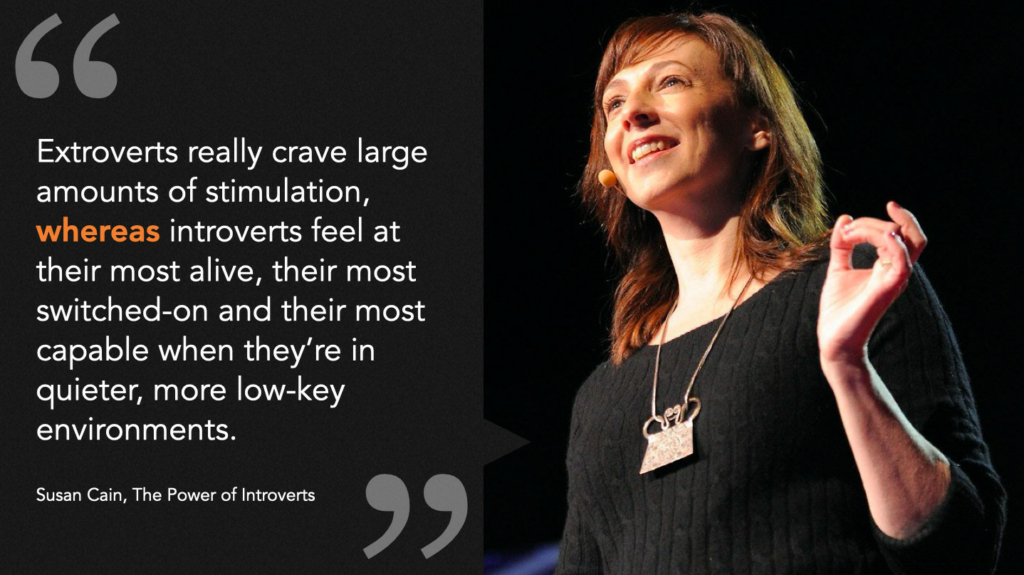Due to the pandemic, the Internet is awash with articles discussing remote working. Some say the future is all remote while others insist we must get back to the office. However, I’m yet to see any that talk about something I’ve noticed, how each individual’s personal preference creates a bias and informs their stance on the topic.
In this article, I’ll write about my observations and thoughts as well as discuss my personal stance on the topic of remote working.
The first observed signs of bias
Many years before the pandemic, the company I worked at would only allow someone to work remotely under exceptional circumstances. I tried hard to champion a more relaxed policy on remote working but didn’t have much success.
I would spend time trying to convince the boss of the benefits, citing research and stats and how much more work I got done when at home but nothing seemed to make a difference. In my mind, the boss wanted people in the office because that was the way work has always been done and he didn’t trust his employees.
Then one day, my boss made a rather casual comment and it blew my mind. He said…
Working at home is impossible for me. I get distracted too easily, whether it’s the TV, fridge or pets, it’s just impossible to get anything done.
My old boss
This comment made me realise that my assumptions about my boss were completely wrong. It wasn’t that he was archaic in his thinking and didn’t trust anyone for no reason. The issue was that he was assuming that when anyone worked from home, they could not possibly be productive due to distractions because that was his own experience.
This is possibly a commonality in company founders due to many being more extroverted.
Introverts and extroverts working from home
A big reason why I get more done when working from home is my introverted nature. I thrive in quiet environments where there’s few or no other people around. When I’m in a busy environment with people around, such as an office, it makes it hard to focus and drains my energy.
The opposite is true for extroverts. Working at home for them makes it hard to focus, is incredibly draining and they crave stimulation. Working at home for them is their least optimal environment.

Not only do extroverts thrive in stimulating environments, surrounded by people and interaction, they are also, by nature, risk-takers, while introverts tend to be risk-averse. While not the case for everyone, this tendency means that in most cases, the founders and CEOs of companies will often be extroverts.
This means that most companies are created and led by people that are not big working from home fans and these people also set the culture tones in their companies.
I believe this is a big reason many companies shy away from a working from home culture.
I believe that this is how presenteeism, the unhealthy culture of coming into an office for as many hours as possible purely to alleviate feelings of insecurity about your job, has continued to maintain a firm grip on workforces globally in a technological age where office presence is required less and less.
I also believe the conversation about remote working is heavily driven by personal preference, or bias and has little to do with evidence.
Personal preference drives the remote working conversation
As the pandemic has continued and remote working has been forced onto large swaths of the population, new conversations are being had in companies about working policies, both during the pandemic and post-pandemic.
My current company is no different and I’m actively involved in a working group that is tasked to think about this topic in depth. One of my contributions to the group was to create a remote best practice guide for colleagues. In order to create this, I went into heavy research mode, not just with lots of reading but also talking to as many people as possible and it was through this talking that a clear trend began to emerge.
The trend was, that whenever someone was expressing the ways of working that they felt was more effective for a team or company, it was absolutely always directly in line with how they personally preferred to work, myself included.
People would almost never give an evidence-based answer and yet expressed their beliefs as if they were fact. Once I noticed this trend, I immediately saw that I was doing exactly the same thing. I would strongly say that the best way for a company to work was remote because of reason X, Y or Z when in reality, I was actually just expressing my personal preference.
So how can you remove bias from conversation?
My evidence vs. bias approach to remote teams
Having led many teams over the last decade, the topic of remote working has often surfaced. It could be raised by people on the team, citing where they feel the industry is going, what other company policies are or just their personal desire to work remotely more often.
It’s also raised by managers and leaders, typically along only one theme, they want the team to be in the office more often. I’ve seen team leaders handle this, badly, in two ways, by either:
- Not challenging the order and informing the teams they need to come in more, no exceptions.
- Challenging the order with aggressive intensity because they believe it’s an arbitrary decision straight from the factory mentality of yesteryear.

I prefer to take an alternative approach. An approach that attempts to remove personal preference, bias and any arbitrary thinking from the equation. On hearing managers say they want a team to be in the office more, I’ll:
- Remain neutral and simply enquire what they think is not working well about the current situation and also, what they believe will be improved by more office presence.
- State that I have absolutely no qualms telling the team they need to come into the office more but I want to be able to measure/observe if the thing we’re trying to improve, actually improves.
- Explain that the reason for this is because if the thing we’re looking to improve clearly does, we can consider the change a success but, if we see no improvement or a decline, we can dump the ask for more office presence and refocus our efforts on another approach to improve what we’re trying to.
- Clarify that what I’m looking to do is avoid a situation where demands are being made for people to go into the office more for vague or hard to measure reasons, which result in it being unclear if the reason for the demand has been met i.e. we impose new rules on people for no justifiable reason, which is by definition, arbitrary and a morale killer.
If, when I ask for the things we’re looking to improve, I get no clear answers, I’ll then politely but firmly push back on the demand.
Often the answers given are quite vague e.g. we think it will help collaboration, team spirit or productivity. At this point I’ll assume good intentions and try to dig a little deeper into those reasons, asking for recent examples where it felt being remote caused issues. If examples can be given, great, we can use those as benchmarks to measure changes.
However, sometimes no specific examples, recent or not, can be given and it’s about then that I begin to suspect other motives. It can be dressed up in many ways but it almost always comes down to a lack of trust. A lack of trust that people and teams are working effectively when not co-located in an office, where they can be seen i.e. the old ‘bums on seats’ culture.

It’s at this point that I will again, politely but firmly resist the demands for more office presence as I don’t want to perpetuate what I believe to be a very unhealthy culture.
I believe that this approach removes the personal preference and bias from demands to be in the office more and exposes any arbitrary nature. It also removes my own personal preference and bias because I’m very sincere when I say I’ll happily get everyone back in an office if it makes something tangibly better.
When I do push back, I’ll often hear a few, pretty decent, challenges back to me…
Common responses when being challenged about office presence
Hopefully, what’s coming across by now is the fact that most people that want others in the office, don’t want it because they have malicious motivations. They simply believe that having people in an office is much better than not, often because they themselves find it tough to work at home and do better work in an office.
However, many don’t realise this and add other reasoning to their desires. Here are some of the most common responses I get when specificity can’t be given during my non-biased approach:
- Why pay city wages to folks that don’t come into the city?
- If the team is remote, why would we not just offshore the work?
- It’s not unreasonable to ask people to come into the office, is it?
- We don’t have to justify in detail all of our decisions.

Why pay city wages to folks that don’t come into the city?
This is a divisive question that splits people but I come down on the side of it being a pretty fair comment. Yes, people that work from home need to pay for a decent working space, food and electricity bills etc. but in most cases, I think it would be fair to say that it’s overall and in the long-run, cheaper to work from home than it is commuting to an office.
I think paying people less to work at home is a way to remove this argument and a deal many would take. I also think this makes long-distance working more of a reality, which is beneficial to any company as they’re no longer tied to finding talent within a geographical location but can hire the best people, almost regardless of their location.
However, the market may not be so tolerant of this approach as other companies with differing viewpoints will happily pay the same. So one to approach with caution.
If the team is remote, why would we not just offshore the work?
I see the logic in this argument but I think it falls down quite quickly under scrutiny. If a company could get as good quality work done with a cheaper offshore team, then I’m not sure why you wouldn’t do that, regardless of the remote working conversation, in fact, I advise it.
The brutal truth is that often offshoring to any supplier rarely produces the same quality work and much of the money saved at a surface level is offset against time and money needed to manage the supplier and people.
Also, by using a supplier, you’re not growing any talent internally and this will hurt any company in the long run.
It’s not unreasonable to ask people to come into the office, is it?
It’s not but as long as there is a good reason. I would go further and say that if having people in three times a week produced tangible benefits for the team and company, try four and five days. After all, the sole aim is improvement.
But if you can’t say in detail and measure or clearly observe the improvements you’re trying to make by having people come in, as I’ve stated before, I question your thinking.
We don’t have to justify in detail all of our decisions
The hardest of all stances and an absolutely true statement. A company, founder or CEO does not have to justify in detail all of their decisions and can simply give people orders, this is their right and I will tell anyone I manage that.
What I will also tell both those I manage and any CEOs or leaders that take this approach, is that while this is their right, it’s also the right of everyone on the receiving end to feel and react as they see fit to this approach.
If the bosses are cool with that, that’s up to them but at worst people will leave and at best, morale will be destroyed, so it’s never a wise approach in my opinion.
What fully remote has taught me
Even I, an introvert that loves working from home and gets their best work done there, can’t say I’ve not noticed certain things about remote working over the last year.
Video one-to-ones
For example, when doing one-to-ones with people I manage, in the past, if we were doing it by video and the other person didn’t want their camera on, this was cool with me. But since being fully remote, I’ve found that not being able to see the person drastically reduced my ability to sense how they’re feeling. Not seeing facial expressions and body language hinders me and I also feel has a negative effect on rapport building.
Soft skills learning
I also had my own bias exposed again when I saw this quote…
Soft skills are best learnt immersed in an office environment, often without you even realising it.
Jonathan Croucher, What You Can’t Learn Working From Home
The article talks about how important this is, especially for those in the early stages of their careers. As this is not me, it never crossed my mind and I felt humbled and pleased to have my eyes opened, especially when I think back to how much I learned, in exactly this way.
No bumping into people or chance encounters
Being fully remote means you no longer bump into people in the office and say hello. Those chance encounters with someone you’ve not seen for a while have vanished. Gone are the casual conversations over lunch where you realise you have a shared interest with someone and other such relationship builders.
Companies have pro-actively combatted this in various ways and hats off to them all but it… well it just isn’t the same.
Go into the office, not for yourself but for others!
In addition to this, I’ve learned to change my own previously wrongly held beliefs about people that love the office. The pandemic has been so tough on so many people that are more extroverted. As an introvert, it’s not hard to imagine. If some global situation occurred, that meant I had to be in an office seven days a week and every night, attend a mandatory social event in a noisy busy environment, I know how bad that would make me feel.
I’ve spoken to many folks who feel this way. They don’t have any strong views on people that want to work from home, they just want to get back into the office to be around people.
This lesson made me realise that too many people that enjoy working from home, that do their best work from home, too often purely focus on what benefits them, without a single thought for what benefits others. My stance used to be the selfish one but that has now changed to be more balanced.
Yes, I have lots of reasons why working from home is better for me and the office will always be a second place. But from now on, sometimes I will go into the office, purely for the benefit of others that want to be around people. If they can be cool with me working from home a lot, I can damn well feel less productive and drained from time-to-time if it makes someone else feel happy.
The future
Remote is here to stay. This is just a fact now. For all the reasons there are to go into an office, the surveys show the same thing. Most people do not want to return to the office full-time.
Some people are glad the world has gravitated towards their preference, while others are new converts. New converts no longer see the point of commuting to an office for hours, only to sit at a desk and do a job on a computer that they now know they can do from home. They also love the extra time with their families.

Some companies have already or will go fully remote, while others will demand everyone returns to the office. I think the majority will adopt a hybrid model, where few people are full-time remote but most split their time between the office and home.
What’s important is that any decisions made by leaders on this topic, are done so based on evidence and not preference or bias and others clearly feel the same.
In the above mentioned PwC survey executives say they are worried about the effects of remote work: “68% say a typical employee should be in the office at least three days a week to maintain a distinct company culture.” How the hell would they know? While this might be true, there’s nothing that underpins this (except a lot of baseless assumptions). Wouldn’t it be a lot smarter to test and experiment before jumping to conclusions? How about resisting the urge to draft new policies before the pandemic has even ended?
Pim de Morree, 365 Days Of Working Remotely: What Did We Learn?
What’s critically important for companies to understand now is that they must not try to return to the way things were before just because that is how things have always been.
Leaders must examine their own personal preferences and biases, put them to one side and focus on the future of work and the people that do it.
When things become difficult due to some people being in the office and others being on video, they absolutely must not just regress into the office mentality but instead be militant about finding ways to improve things for a hybrid-model workplace.
Do leaders feel collaboration is dipping in a hybrid-model workplace? Ok, what can be done to make that better, aside from forcing everyone back into an office together? This will of course fix the problem in the short-term but what about the long-term. Other companies are using this new era to make hybrid work well and as your employees become more aware of these companies existence, efforts and culture, what do you think will happen.
Are the current technology and tools not working? Use them in better ways or try new ones, instead of regressing back into the office as a solution.
Our managers are finding it difficult to effectively lead people remotely? Train them how to do their job remotely. Invest in L&D programmes and workshops. Do what’s needed to make things better.
I could go on but I’m sure by now you get the point.
When faced with a challenge that the new world presents, simply resorting to ‘back in the office’ is not only lazy but it’s not strategically smart. While you regress, other companies will evolve and that only ends one way for both companies.
So challenge yourself to look critically at how you feel about remote working and how much it informs your views on what makes an effective business. Overlay that against the way the world is going and begin to decide whether you want what’s best for only you or what’s best for the company in the long-term. Then begin to trial things while looking at measures and tangible observations, to see what works best and when you hit any roadblocks, overcome them, instead of regressing into the past.









Leave a Comment